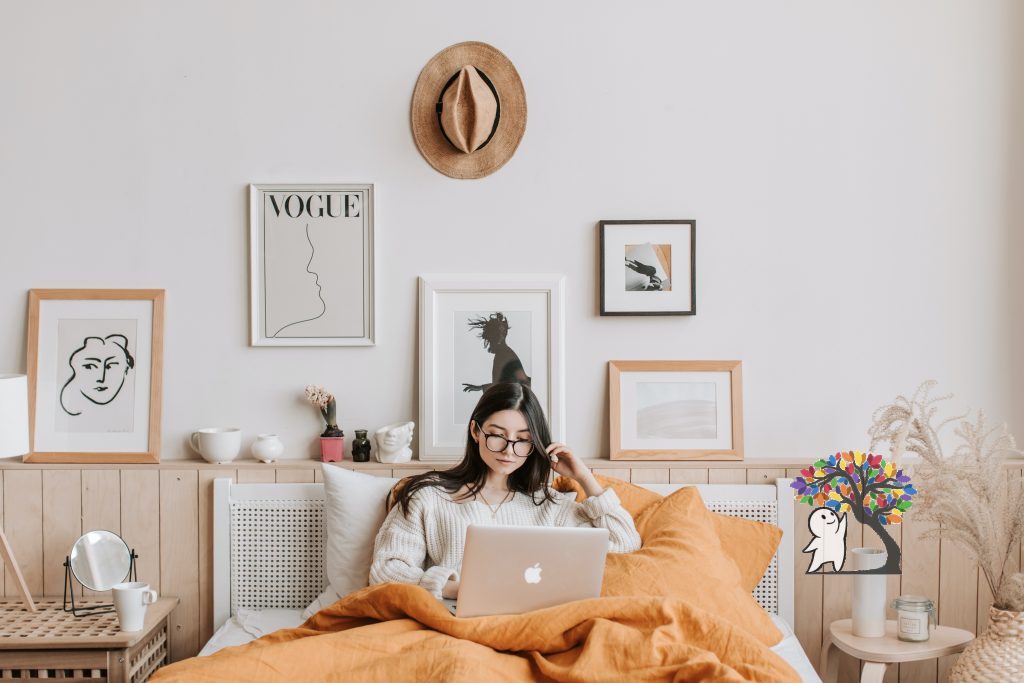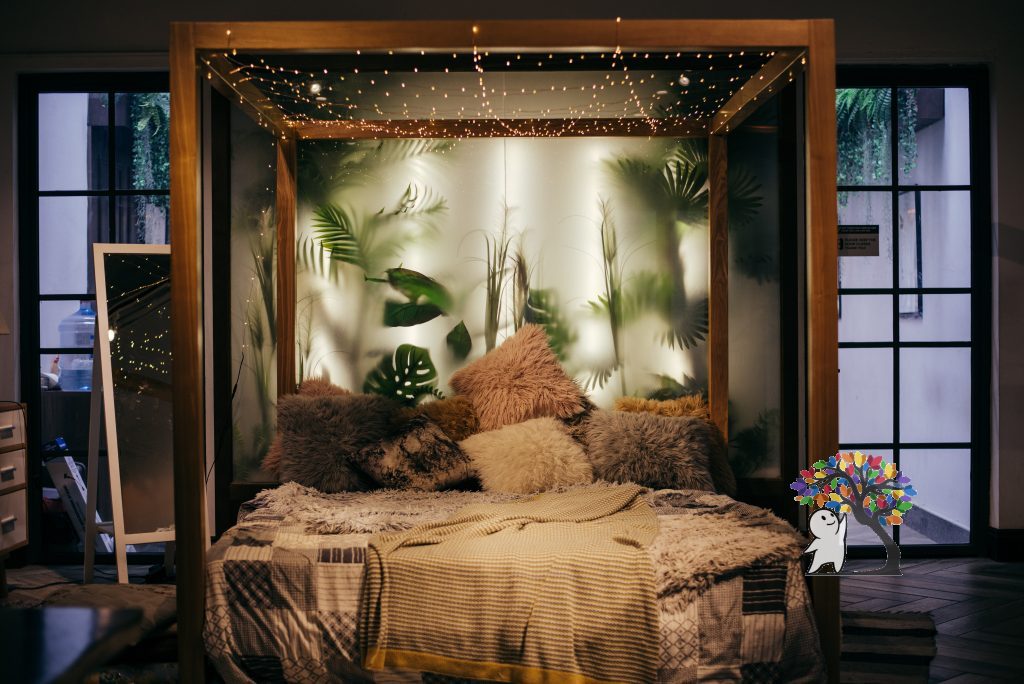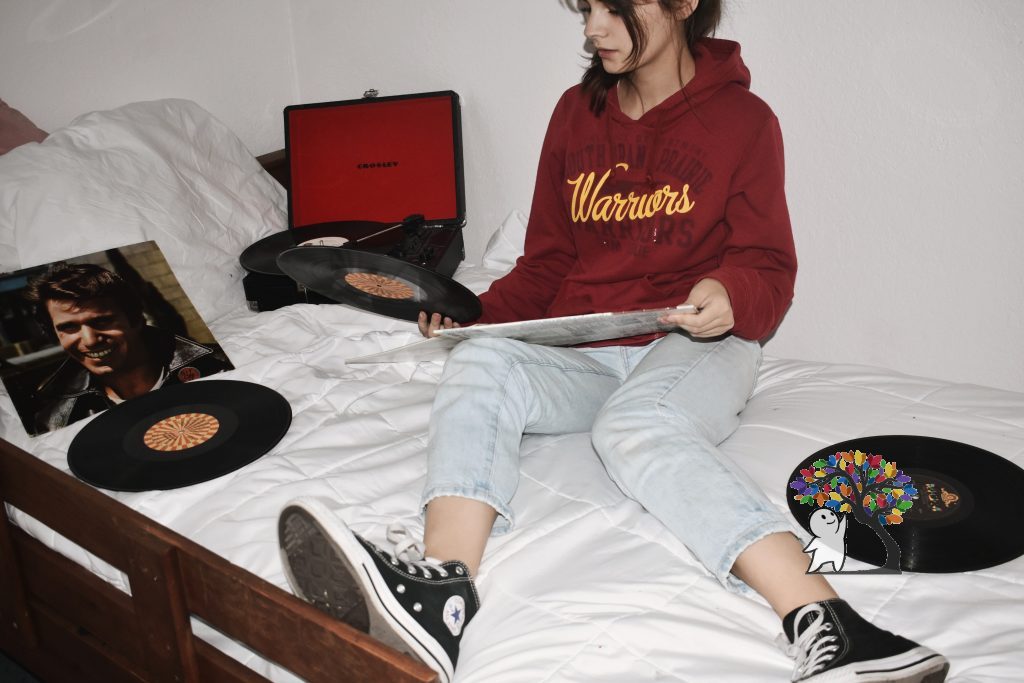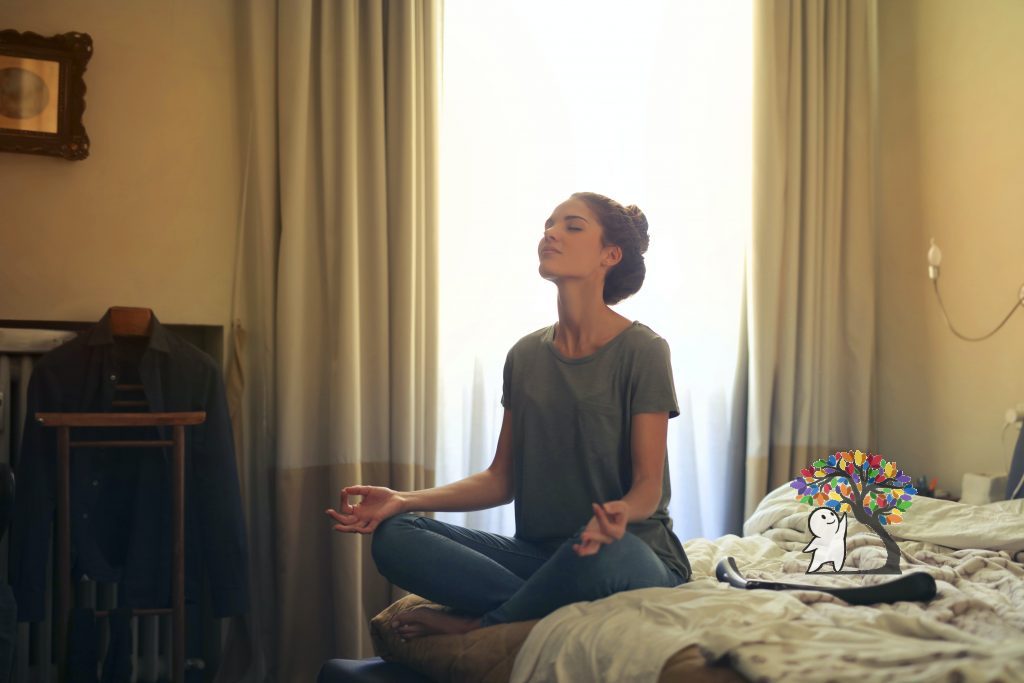What Your Bedroom Says About You

As sick as most of us may be of our bedrooms, they are an important part of who we are. They’re where you spend most of your time and have intimate moments alone. However, did you know that beyond being your safe space, your bedroom says a lot about your personality and habits? You can tell a lot about someone based upon both the smaller and larger aspects of their bedroom, such as their choice of decor, furniture, and organizational habits. Curious to know what these mean for you? Keep reading to find out all about the meaning behind your bedroom!

To begin with, why are our bedrooms so special to us? The answer may seem obvious, but it’s much deeper than, “it’s where I sleep, and for some of us, the only place to get some much-needed alone time.” Additionally, your bedroom keeps you grounded to who you are. While that may seem like a large claim, throughout time, people have manifested their identities through matter. For example, Native Americans made pottery that reflected their relationship with nature by using warm, earthy colors and designs based upon plants and animals. Certain objects have certain qualities that you want in your life. In their case, the Native Americans wanted their lives to be nature-based, which they were. This same principle applies now as well, for we often pick items for our bedroom that reflect who we are and who we want to be. Simply put, your bedroom is your mind’s physical home, so it stabilizes, organizes, and embodies your identity. This is the reason why you feel most at home, at home!
Now that you understand why your bedroom is an extension of you, here are the specifics of how it reflects you and what that means. In his international bestselling book, Blink: The Power of Thinking Without Thinking, renowned author Malcolm Gladwell breaks down the aspects of your room into three categories:
1. Identity claims
Identity claims are what you are and want to be. They’re often display items about your hobbies and interests. For example, trophies and medals from playing sports or posters from your favorite franchise all around your room. These obviously show anyone who enters your room your tastes, but they also say a great deal about you. By looking at what you’ve chosen to display around your room, you can get a feel for what you prioritize as the highlights of your life and what you want your life to emulate.

2. Behavioral residue
Unlike identity claims, behavioral residue is what you unconsciously do with your room. It could be leaving your dresser open or clothes out on the floor. These small habits say a lot about your lifestyle. For example, if you leave your dresser open or might not have time to put away your clothing, you might be someone who is bigger-picture-orientated. On the other hand, if your room is always neat and tidy, this shows that you’re someone who is detail-orientated. However, beyond the obvious habit and lifestyle suggestions that seem intuitive, behavioral residue is often what we wish wasn’t a part of our life and don’t show people. Since they’re unconscious behaviors, chances are if you had the time to think consciously about them, you wouldn’t do them. When people come into your room, you make it as presentable as possible, which often entails putting clothing away and shoving potentially embarrassing things under your bed. You don’t want to show people your disorganized room, nor do you want to show them anything you’re embarrassed about. Thus, by looking at behavioral residue, you can see what you don’t show people, and sometimes, wish wasn’t a part of your life, to begin with. What do you shove under your bed when people come?
3. Thoughts and feelings regulators
These are the things you put in your room to help your mental health. They could be photos to remind you of happy times or scented candles to uplift your mood. These self-care items reflect how conscious you are of yourself. By having a lot of them around your room, chances are you’re well attuned to your emotional needs and what makes you happy. If you don’t have them in your room, you might not have figured out your emotional needs and what uplifts you yet. By looking at what you put around your room to regulate your mental health, you can get a good sense of the people, places, and activities that you enjoy most.

Bedrooms do a great job of portraying personal traits such as conscientiousness, openness, and emotional stability, but they don’t tell you much about how you interact with others using traits such as extraversion and agreeableness. Your bedroom is one of the most personal and private places for us, so it will reflect your authentic, individual self! Did you learn anything from your bedroom? Perhaps it was something you’ve just noticed after inspecting it closely? Feel free to comment down below what your bedroom says about you!
References
- Blink: The Power of Thinking Without Thinking by Malcolm Gladwell



Responses